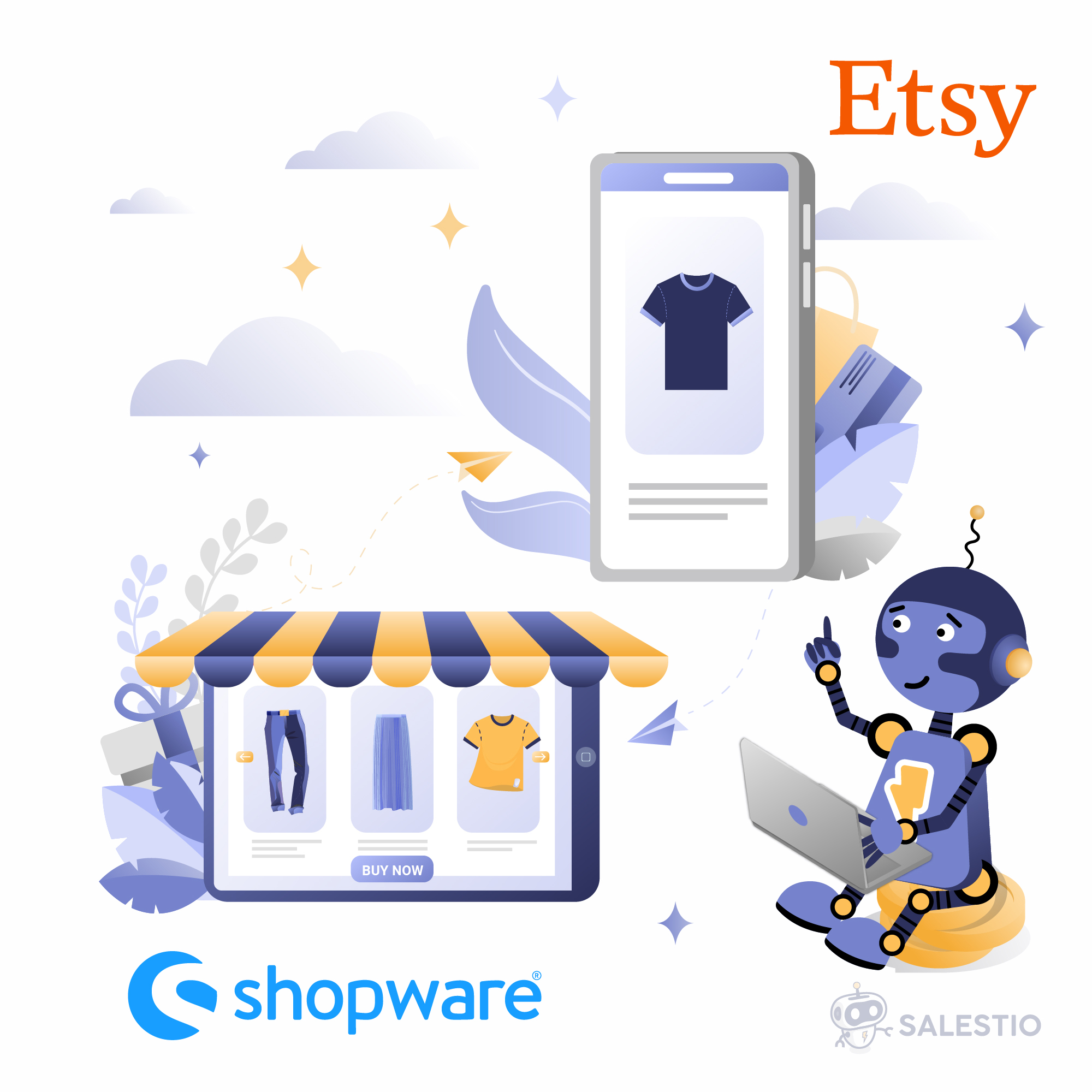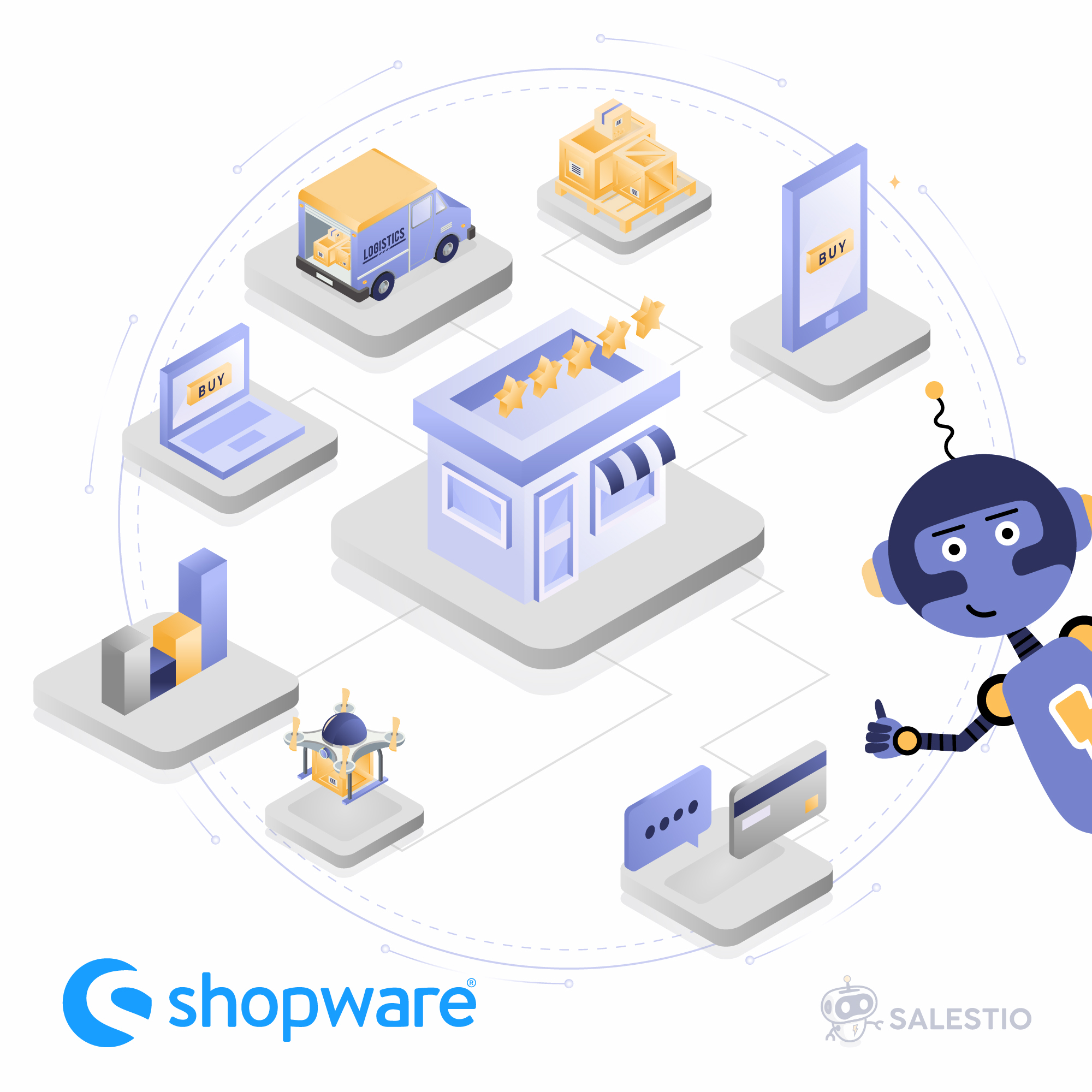23 Jan'26

Shopify Locations in Salestio
Shopify offers the option to manage the inventory in multiple Locations, such as warehouses or retail stores. Making use of the Location features is helpful if you want to track the inventories separately, lower fulfillment costs, and better navigate in multi-channel sales. Salestio offers multiple tools to integrate your Shopify Locations with online marketplaces. In […]
02 Jan'26

Salestio for BigCommerce: Settings Explained
Most of the features in Salestio work without the need to adjust the settings. In the Settings tab, you can configure the app to better fit your workflow. In this article, we will explain the available options and how they can help you customize the Salestio app. The Settings page in Salestio features tabs for […]
12 Dec'25

Product Import — sync eBay listings & stock to Shopify
The Product Import app is helpful for moving your existing eBay inventory into Shopify and synchronizing the stock updates from the marketplace. In this article, we will share the steps for both processes: importing the items and setting up the quantity sync. Connect an eBay account Connect your marketplace account to let Product Import pull […]
05 Dec'25

Link existing Etsy listings to Shopware products
If you have been actively selling on Etsy and now want to connect Shopware products to your Etsy inventory, Salestio has an easy way to do so. In this article, we will go over the process and explain the related customizations. Before proceeding with any of the steps below, connect the Etsy account to Salestio. […]
28 Nov'25

Sync inventory back to the Main Store — Multi-Store Sync
Salestio — Multi-Store Sync offers a variety of tools to keep two or more Shopify stores synchronized. With the default settings, the app syncs stock levels only from Main to Dependent stores. A quick refresher on the differences between Main and Dependent stores: The Main store serves as the source of product information for all […]
14 Nov'25

Key Salestio features in Shopware
Salestio serves as a means to connect your Shopware store to Amazon, eBay, and Etsy. In this article, we will explore the main features that help keep your marketplace listings in sync with the Shopware store. Send the Shopware catalog to marketplaces Salestio can send the items from your Shopware store to marketplaces of your […]
24 Oct'25

Avoid common mistakes when Selling on Amazon, Etsy & eBay with Salestio
Selling online can have a lot of nuance. Attention to detail can go a long way towards building a fast-growing store. In this article, we will go over the most overlooked details related to listings on Amazon, eBay, or Etsy, and share tips on how Salestio can help keep the product pages consistent. General mistakes […]
17 Oct'25

Manual vs Automated actions in Salestio
Salestio aims to free up some of the schedule for marketplace sellers, so a lot of the features in the app are automated by default. In this article, we will go over the key automation options, explain what works out of the box, and help you configure them to best fit the needs of the […]
26 Sep'25

Salestio for Shopify: Settings Explained
Most of the Salestio features work without the need to adjust the Settings page, but here you can configure the app to better fit your store workflow. This article will explain the available options and how they help with customizing Salestio. The Settings page in Salestio features tabs for the general app settings (changes here […]
19 Sep'25

SKU Mappings in Salestio: Customize Product Pairs Between Platforms
Salestio can establish a connection between already existing marketplace items and products in your e-commerce store. To find the product pairs, the app compares the product SKUs and locates a match. By default, Salestio syncs quantities and orders for items that have the same SKU. Sometimes, the same product can end up with a different […]
- 1
- 2